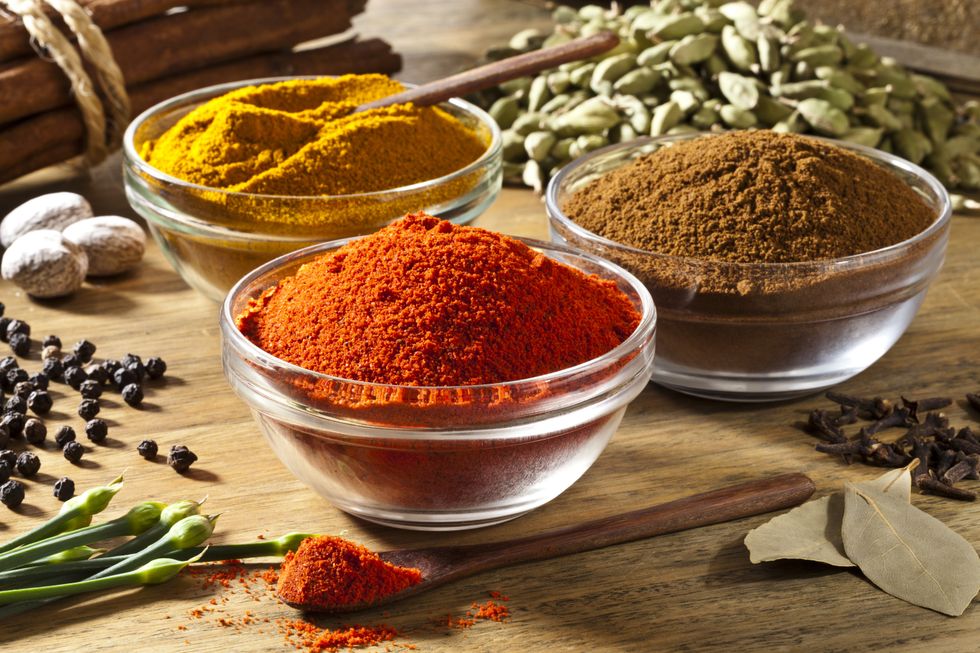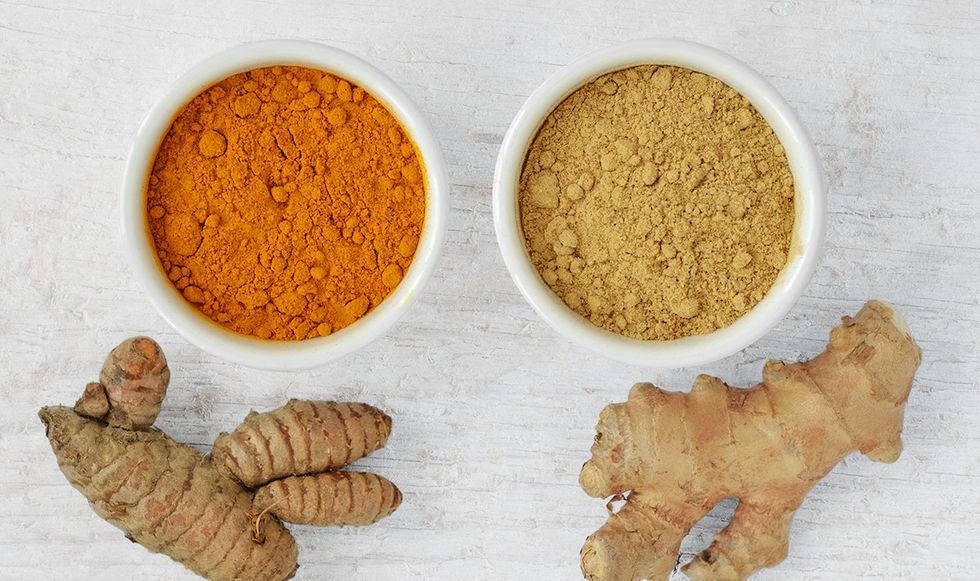Golden spice found to boost memory in middle-aged adults by 30% and significantly reduce 'bad' cholesterol

A golden spice has been shown to boost memory in middle-aged adults and lower high cholesterol
|Getty Images

Participants on the spice showed improvements in the regions of the brain that control several memory and emotional functions
Don't Miss
Most Read
Scientists may have discovered the Swiss Army Knife of supplements.
A golden spice has been shown to boost memory in middle-aged adults and lower high cholesterol.
Daily consumption of a certain form of curcumin — the substance that gives Indian curry its bright colour — improved memory and mood in people with mild, age-related memory loss, according to a study conducted by UCLA researchers.
The research, published in the American Journal of Geriatric Psychiatry, examined the effects of an easily absorbed curcumin supplement on memory performance in people without dementia, as well as curcumin’s potential impact on the microscopic plaques and tangles in the brains of people with Alzheimer’s disease.

Daily consumption of curcumin improved memory and mood in people with mild, age-related memory loss
The double-blind, placebo-controlled study involved 40 adults between the ages of 50 and 90 years who had mild memory complaints. Participants were randomly assigned to receive either a placebo or 90 milligrams of curcumin twice daily for 18 months.
All 40 subjects received standardized cognitive assessments at the start of the study and at six-month intervals, and monitoring of curcumin levels in their blood at the start of the study and after 18 months.
Thirty of the volunteers underwent positron emission tomography, or PET scans, to determine the levels of amyloid and tau in their brains at the start of the study and after 18 months.
The people who took curcumin experienced significant improvements in their memory and attention abilities, while the subjects who received placebo did not, Small said. In memory tests, the people taking curcumin improved by 28 percent over the 18 months. Those taking curcumin also had mild improvements in mood, and their brain PET scans showed significantly less amyloid and tau signals in the amygdala and hypothalamus than those who took placebos.
The amygdala and hypothalamus are regions of the brain that control several memory and emotional functions.
Heart health
In addition to boosting brain power, curcumin has been shown to reduce LDL cholesterol, aka the 'bad' type of cholesterol that raises your risk of heart disease.
A meta-analysis of seven studies published in the Nutrition Journal found curcumin significantly reduced LDL cholesterol compared to the control group.
The researchers also noted the following:
- By reducing serum LDL levels, turmeric and curcumin may help protect people at risk of cardiovascular diseases.
- People may tolerate curcumin better than conventional drugs.
- There is a need for more research to understand curcumin’s most effective dosage, form, and strength
A 2021 review looked at studies into the effects of curcumin on cholesterol. It found that curcumin significantly reduced one type of lipid in more than two-thirds of the studies. Studies that used a bioavailable formulation of curcumin reported a better impact on lowering cholesterol.
LATEST DEVELOPMENTS

Studies have suggest curcumin might decrease absorption of cholesterol
|Getty Images
More research is needed to confirm these results and the mechanisms involved.
Studies have suggested curcumin might decrease the absorption of cholesterol and increase the activity of cholesterol-7α-hydroxylase - this gene plays an important role in maintaining cholesterol balance.










